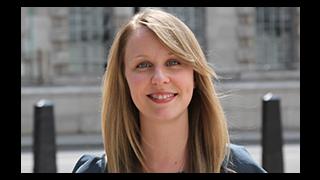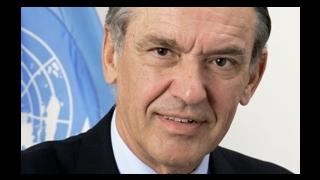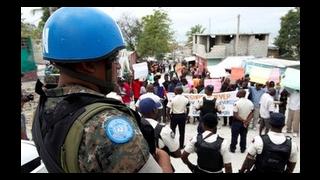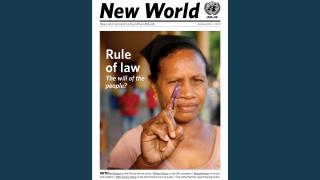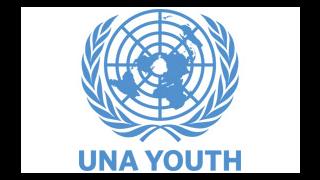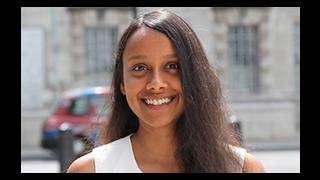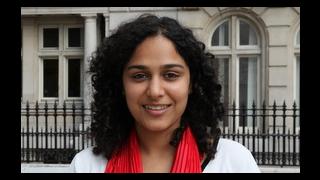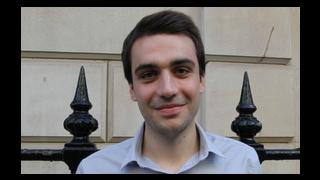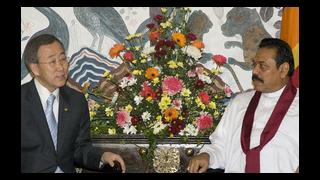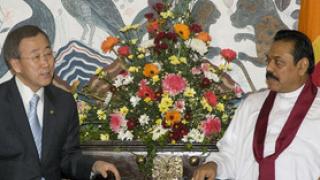
Since the end of World War II, violent conflicts in multi-ethnic societies have been the leading cause of death, destruction, under-development and poverty. However, whilst development and peace-building efforts often pay lip service to promoting reconciliation between different ethnic groups, too often, the root causes of grievances remain unaddressed.
Oxford University’s Centre for Research on Inequality, Human Security and Ethnicity (CRISE) has carried out research on the links between ‘horizontal inequalities’ – the inequalities between identity groups – and conflict. In an interview with an IPS reporter in June 2008, Professor Frances Stewart of CRISE pointed to the multidimensional nature of these inequalities, which can be political, economic, social and cultural. Sri Lanka, she said, exemplified political inequalities, “where one group [the Sinhalese majority] may have total dominance of the political system, and another group [the Tamil and other minorities] does not have any access”.
CRISE has been working with countries such as Malaysia and Nigeria to assist them in adopting measures to tackle these issues without entrenching divisions. This includes carefully-designed policies in areas such as workforce and parliamentary quotas.
In Sri Lanka, not only have successive governments failed to address these inequalities, but aid donors have ignored them too. This exacerbated the long-running conflict and continues to be the case four years after the end of the civil war in 2009.
For decades, inequalities between Sri Lanka’s populations have been the subject of countless reports by national, regional and international human rights and grassrootsorganisations. UN committees and officials have issued dozens and dozens ofrecommendations on improving political, economic, social and cultural equality – only to meet with strong rejection, even vilification, by the country’s leaders. The country’s administration has also been adept at keeping the issue off the table at the UN. In 2009, it managed to influence states so much that the Human Rights Council passed a resolution congratulating the country on its conduct during the war. Since then, the tables have turned, with stronger resolutions passed in 2012 and 2013, and the UN High Commissioner for HumanRights due to visit the country.
But Sri Lanka’scritics are also domestic. Even its own Lessons Learnt and Reconciliation Commission (LLRC), initiated by the government in response to domestic and international pressure, acknowledged the decades of grievances that contributed to the civil war. Many conscientious Sinhalese, including a former UN Under-Secretary-General and several retired diplomats, professors and lawyers gave evidence to the LLRC on how ethnic minorities have been suppressed by successive governments, from the time of independence to the present day. Indeed, since the end of the war, this oppression has continued in the form of the highly militarized administration in the North of the country, and severe control by the armed forces in the East – both home to significant minority populations.
During the war, the government promised the UN that they would hold elections for the Northern Province as soon possible. These would serve as a means to devolve power to the Tamil community, which makes up the majority of the population in that region. Since then, the government has been prevaricating, postponing the elections and seeking to reduce the actual powers that would be devolved. Meanwhile, minority oppression and human rights and rule-of-law abuses – disappearances, torture, sexual violence, censorship, interference with the judiciary – continue apace.
It is astounding that Sri Lanka, with its backdrop of unresolved inequalities, is considered to be a suitable host of the 2013 Commonwealth Heads of Government Meeting. Many civil and human rights groups have been appealing for the meeting to be moved or boycotted. Even the UK Parliament’s Foreign Affairs Committee concluded in 2012 that: "[C]ontinuing evidence of serious human rights abuses in Sri Lanka shows that the Commonwealth’s decision to hold the 2013 CHOGM in Colombo was wrong. The [UK] Prime Minister shouldpublicly state his unwillingness to attend the meeting unless he receives convincing and independently verified evidence of substantial and sustainable improvements in human and political rights in Sri Lanka."
To date, only the Canadian Prime Minister has listened.
Submitted by a UNA member who wished to remain anonymous




